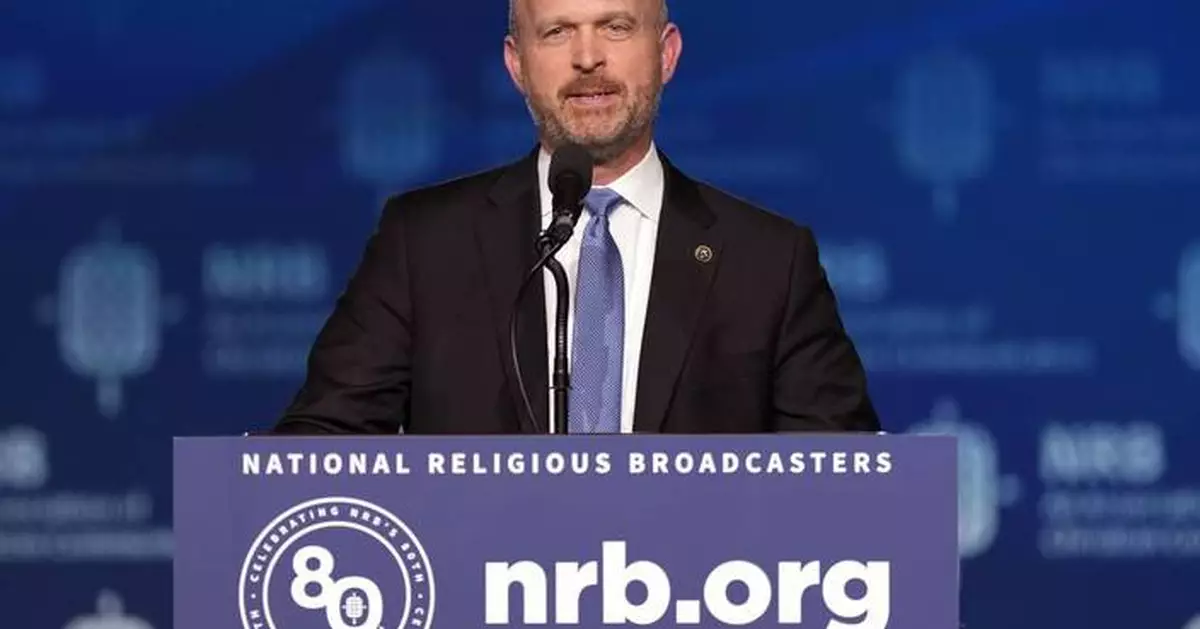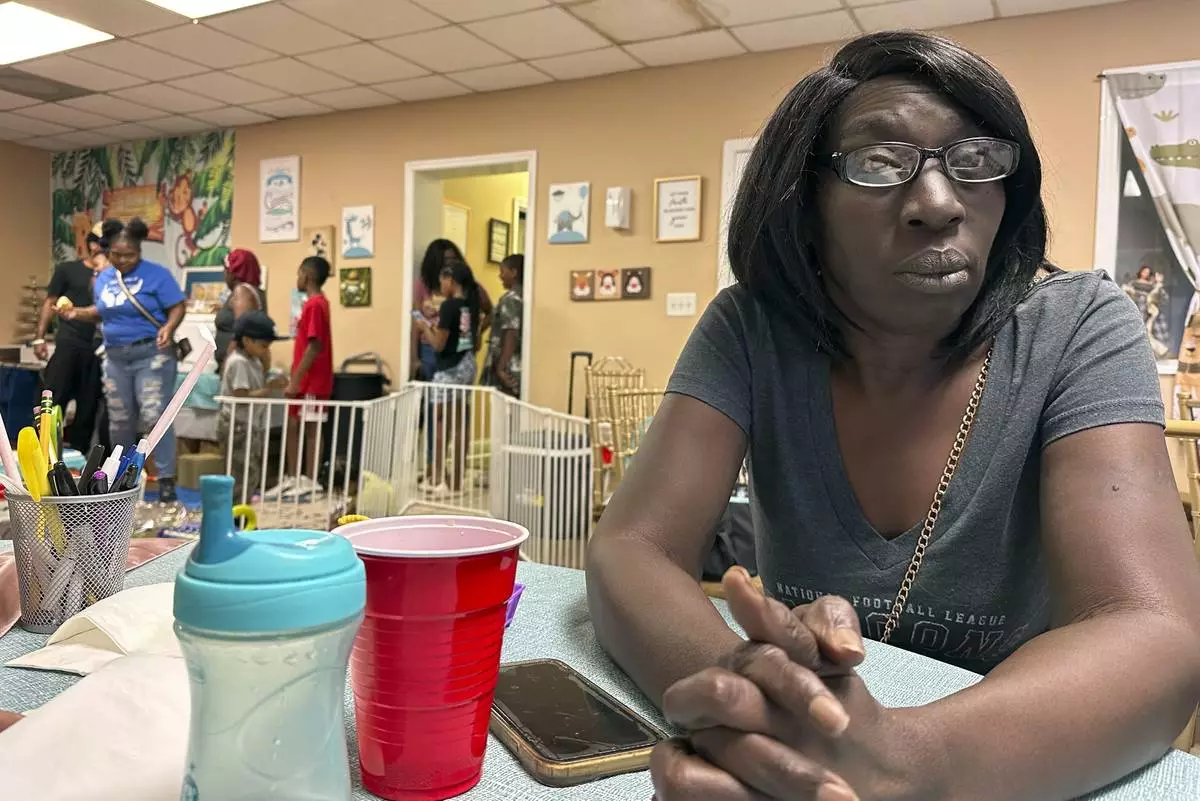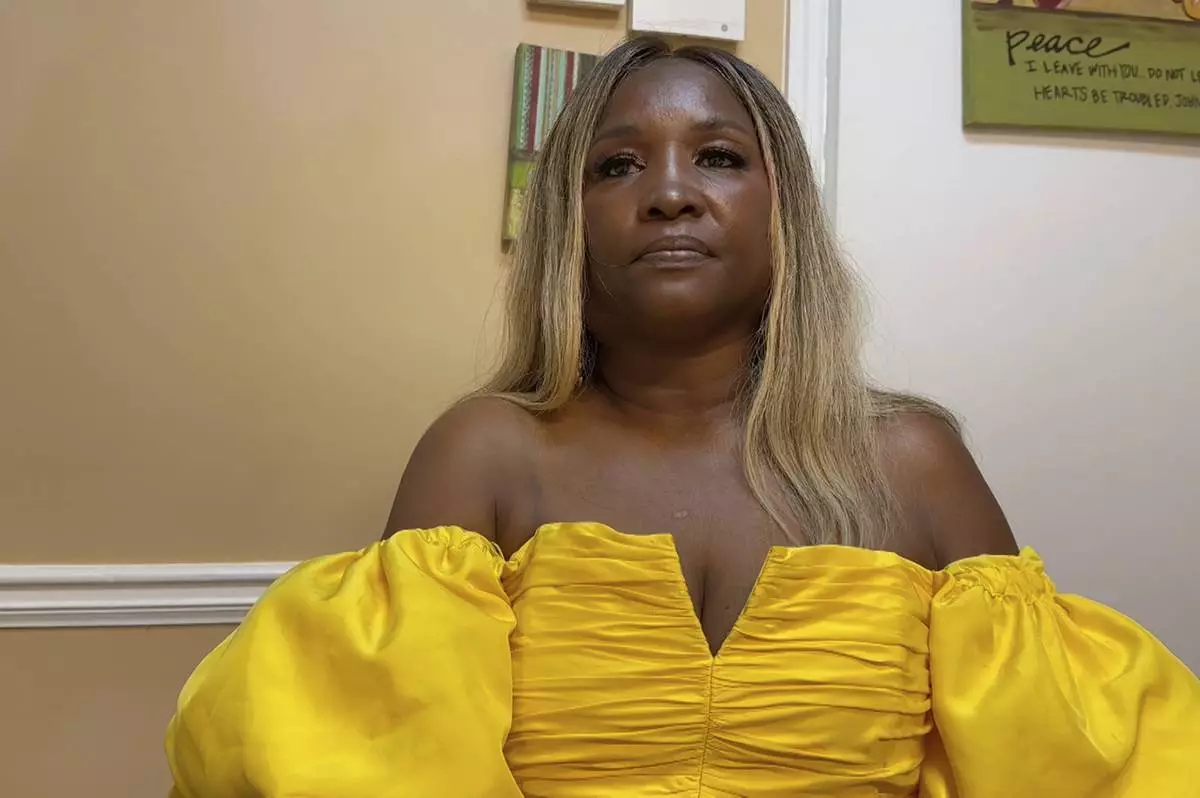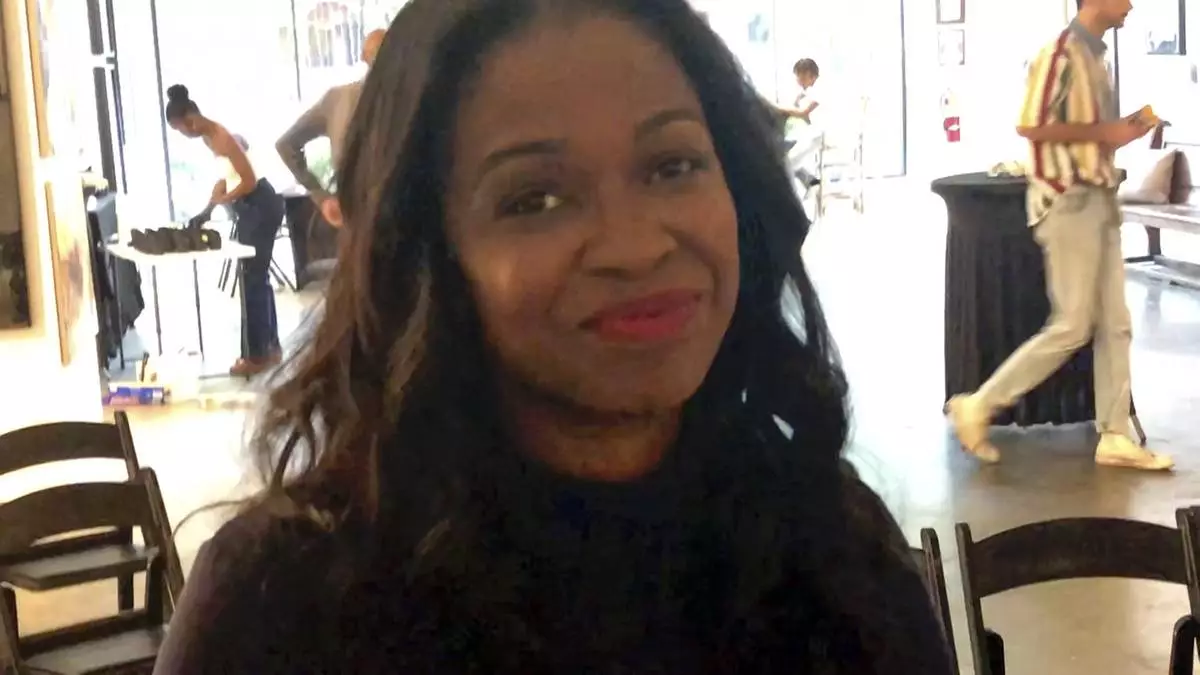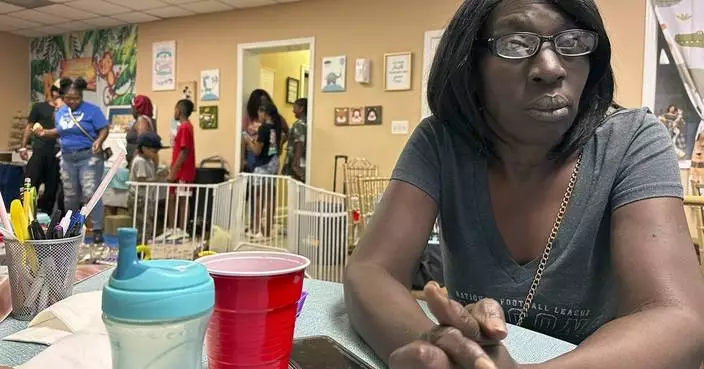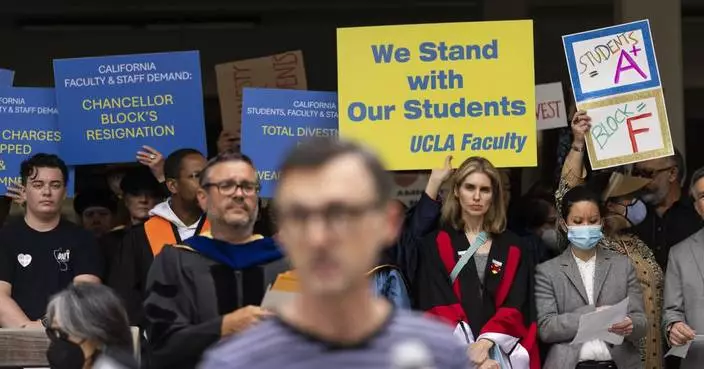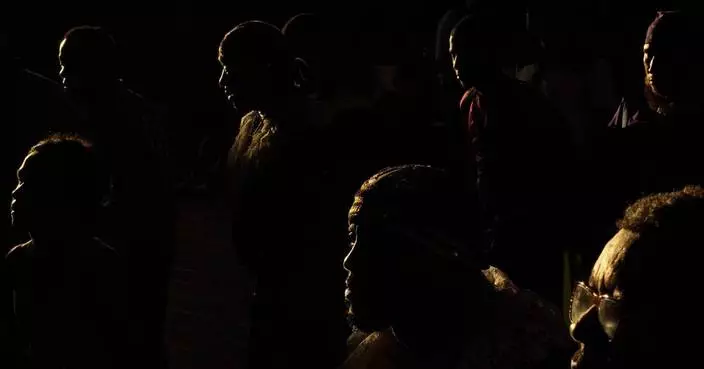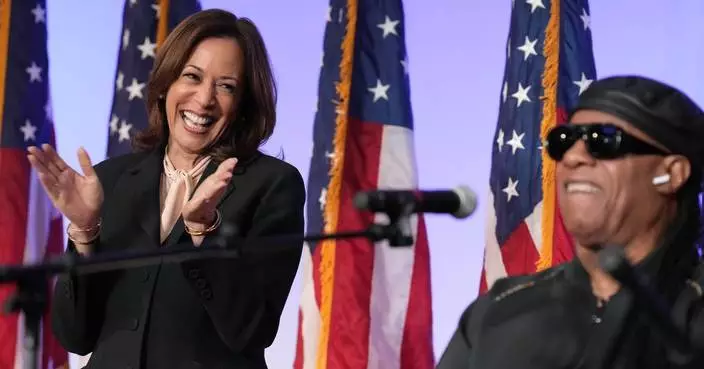WASHINGTON (AP) — For the past year, Project 2025 has endured as a persistent force in the presidential election, its far-right proposals deployed by Democrats as shorthand for what Donald Trump would potentially do with a second term at the White House.
Even though the former president’s campaign has vigorously distanced itself from Project 2025 — Trump himself declared he knows “nothing” about it — the sweeping Heritage Foundation's proposal to gut the federal workforce and dismantle federal agencies aligns closely with his vision. Project 2025’s architects come from the ranks of Trump’s administration and top Heritage officials have briefed Trump’s team about it.
It’s rare for a complex 900-page policy book to figure so dominantly in a political campaign. But from its early start at a think tank, to its viral spread on social media, the rise and fall and potential rise again of Project 2025 shows the unexpected staying power of policy to light up an election year and threaten not only Trump atop the ticket but down-ballot Republicans in races for Congress.
Through it all, Project 2025 has not gone away. It exists not only as a policy blueprint for the next administration, but as a database of some 20,000 job-seekers who could staff a Trump White House and administration and a still unreleased "180-day playbook” of actions a new president could employ on Day One after the inauguration on Jan. 20, 2025.
The Heritage Foundation’s president, Kevin Roberts, who recently took the helm of the project, appears to relish the fight, moving full steam ahead.
“Rest assured we will not give up,” Roberts wrote in an email to supporters this summer. “We will not back down.”
When Project 2025 debuted in April 2023, it promised to “dismantle the administrative state” by putting forward the personnel and the policies that could serve as a roadmap for the next conservative president.
The former Trump administration officials working on the project said they wanted to avoid the mistakes of the first Trump White House by ensuring the next Republican president would be ready with personnel and policies to enact his campaign priorities.
“There is an impetus to really hit the ground running," said Paul Dans, director of the 2025 Presidential Transition Project, in a 2023 Associated Press interview.
Centered at the Heritage Foundation, the venerable conservative think tank in Washington, D.C., the concept for the book touched back to an earlier version, its Reagan-era “Mandate for Leadership” that was said to be so popular at the White House that copies were put on work desks to guide the new presidency.
At least 100 conservative groups, many with alumni from the Trump administration, came together to craft the proposals for a vast restructuring of the federal government — from installing more political appointees at the Justice Department to reassigning government workers with law enforcement backgrounds to handle illegal immigration to dismantling the Department of Education.
One of the core proposals would make it easier to staff the government with Trump loyalists by reclassifying some 50,000 workers into jobs where they can be fired — a revival of the so-called Schedule F policy that Trump tried to put in place before leaving office. The idea is now central to the conservative vision of dismantling the “deep state” bureaucracy that they blame for blocking Trump priorities.
The rollout of Project 2025 on the foundation’s 50th anniversary was also a debut of sorts for Roberts; he had previously been seen as an ally to Trump rival Ron DeSantis, who keynoted the gala event at the start of the presidential primary season.
"The conservative movement is coming together to prepare for the next conservative administration,” Roberts said in the announcement. Heritage, he said, sought “to ensure that the next president has the right policy and personnel necessary to dismantle the administrative state.”
President Joe Biden's campaign had warned against Project 2025 early on, in social media posts ahead of his State of the Union address in April, and House Democrats launched a Project 2025 Task Force to amplify their concerns in June. Days later, comedian John Oliver mocked it on his HBO show.
But it wasn’t until Biden’s dismal debate performance with Trump in June that Project 2025 had its viral moment.
It wasn’t so much what was said at the presidential debate as what went unsaid: Biden failed to really even mention Project 2025, crushing the expectations of allies who expected more of a knock-out punch.
That weekend, a single thread on X about Project 2025 took off, amassing nearly 20 million views, according to the Democratic campaign. Actress Taraji P. Henson, who had spoken to Vice President Kamala Harris in a segment for the BET Awards show, warned prime-time viewers: "The Project 2025 plan is not a game. Look it up!" And countless young TikTok creators speaking directly into their cameras explained the threat they believed Project 2025 posed to their civil rights, reproductive rights and other rights in videos that went viral.
“This is really a case of the grassroots revolting,” said Joe Radosevich at the Center for American Progress. “They saw what was being offered as the contours of the race and completely rejected it.”
Especially in the aftermath of the Supreme Court's Dobbs ruling that ended the constitutional protections for abortion, Democrats and their allies wanted to make the case showing how the presidential election would impact people’s lives in the future, rather than simply giving voters a choice between the personalities.
People wanted a debate about policies, Radosevich said, not an election “purely on vibes.”
By the end of June, Google searches for “Project 2025” surpassed searches for Taylor Swift and the NFL, the Harris campaign said.
And by the time a giant-size replica of the Project 2025 book was hauled on stage for nightly ridicule at the Democratic National Convention, it wasn’t just celebrities and liberal convention-goers who were mocking it. Conservatives began blaming Heritage and Project 2025 for hurting Trump’s election chances.
Trump’s campaign never embraced Project 2025 and actively shunned it, despite the proximity of people and policies familiar to the former president’s time in the White House.
Other conservative groups with close ties to Trump are also preparing for a second term in the White House. Trump’s campaign team had repeatedly warned Heritage to tone it down and not portray Project 2025 as part of Trump's campaign.
But Roberts appeared undeterred, even as he came under fire in July for suggesting, after the Supreme Court ruling granting the president broad immunity from prosecution over the Jan. 6 insurrection, that the country was in the midst of a “second American Revolution, which will remain bloodless if the left allows it to be.”
Trump spoke up forcefully against Project 2025 days later.
“I know nothing about Project 2025,” Trump posted on his own social media account. “I have no idea who is behind it. I disagree with some of the things they’re saying and some of the things they’re saying are absolutely ridiculous and abysmal. Anything they do, I wish them luck, but I have nothing to do with them.”
Trump at the time was rolling out his own policy platform ahead of the Republican National Convention, drafted partly by one of his former administration officials, the conservative leader Russ Vought, who also contributed to Project 2025 and its 180-day playbook.
Heritage parted ways with Dans, the chief architect of Project 2025, who resigned at the end of the month, a move that apparently pleased Trump’s team.
“Reports of Project 2025’s demise would be greatly welcomed and should serve as notice to anyone or any group trying to misrepresent their influence with President Trump and his campaign — it will not end well for you,” said Susie Wiles and Chris LaCivita, the Trump campaign managers, in a joint statement.
As the races for control of Congress tighten to the point where a single seat could determine which party controls the House or Senate, Project 2025 is being used by Democratic-aligned outside groups to portray Republicans as linked to its hardline proposals.
The House Accountability Project has created micro-websites for more than a dozen House Republicans in some of the most contested seats, tying their past votes on abortion, government funding and other issues to Project 2025 proposals.
“The House GOP is actually pushing policies that are in Project 2025 as we speak,” said Danny Turkel, spokesman for the House Accountability War Room. “They're already taking these policies into the Capitol.”
The House Republican campaign committee argues its candidates have nothing to do with Project 2025, and the attacks are concocted by Democrats to shift attention from their own border and inflation policies.
“They fabricated a false attack based on something House Republicans had never even read,” said Will Reinert, press secretary for the National Republican Congressional Committee.
He called the attacks a “desperate lie” as the House Democrats "see their chances of regaining the majority dwindling.”
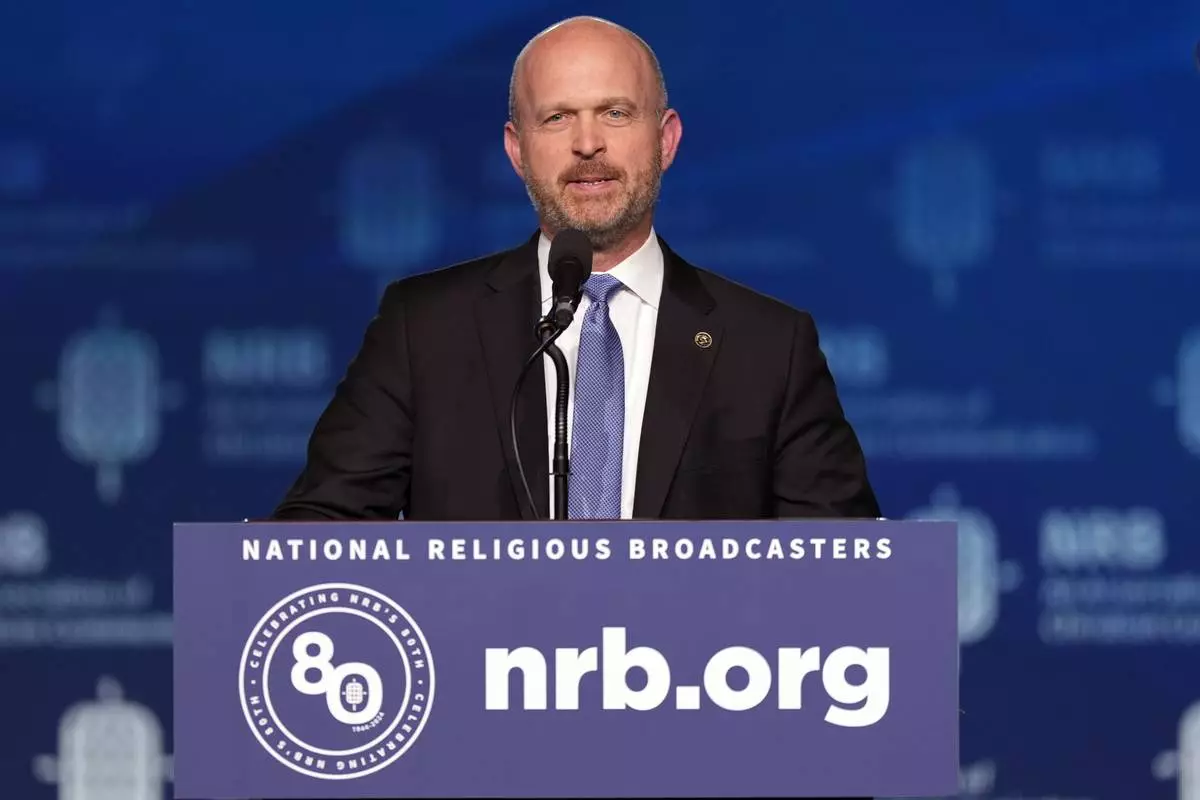
FILE - Kevin Roberts, president of The Heritage Foundation, speaks at the National Religious Broadcasters convention at the Gaylord Opryland Resort and Convention Center Feb. 22, 2024, in Nashville, Tenn. (AP Photo/George Walker IV, File)


